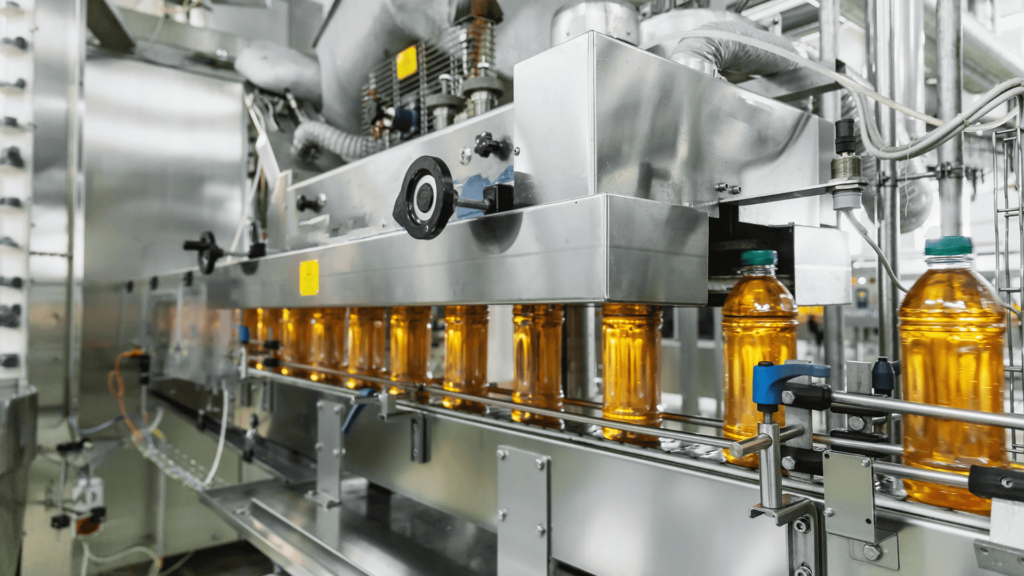UV purification is an effective method to control microbial contamination in the liquid sugar manufacturing industry. It provides a chemical-free and environmentally friendly solution to sterilize process water, liquid sugar syrup and improve product quality. The advantages of UV treatment include cost-effectiveness, ease of application, safety, and increased shelf life.
The liquid sugar processing industry faces growing pressure to meet strict quality standards in a market that prioritizes rules and safety. Even though high osmotic pressure in sugar syrups limits microorganism growth and reproduction, some organisms can still survive in spore form. The consequences are food discoloration, reduced shelf-life of sugar products, and risk of infection. The problem of contamination is made worse by the growing demand for fewer chemical substances and preservatives.
UV light is a type of electromagnetic radiation located between visible light and X-rays. A section of UV light called UV-C, which ranges from 185 to 400 nm, has powerful antimicrobial properties. Its maximum effectiveness is at 265 nm. This type of UV light destroys microorganisms by entering their cell membranes and altering their DNA, making it impossible for them to reproduce. This ultimately eliminates them.
A typical UV purification system consists of a UV lamp enclosed in a quartz sleeve and placed in a special steel chamber. Then, the liquid enters at one end of the room and travels its entire length before exiting at the other end. UV light can treat many liquids, such as thickened sugar syrups, raw water, filtered water, beverages, and wastewater.
The two main types of UV technology are low-pressure and medium-pressure (depending on the type of UV lamps). Low-pressure lamps produce monochromatic UV light (limited to a wavelength of 254 nm). In comparison, medium-pressure lamps generate UV light with a range of 185-400 nm.

UV Purification is highly effective. It eliminates bacteria, viruses, and other microorganisms, providing fast treatment of liquids.
Water treatment: Process water is an important component in liquid sugar production, and it is vital to ensure that it is free of harmful bacteria, viruses, and other microorganisms. UV treatment removes any possible contaminants from the process water. It ensures that the water used in liquid sugar production is of the highest quality.
Sterilization of sugar syrup: Liquid sugar syrup is highly susceptible to bacterial and fungal contamination, which can cause spoilage and reduce shelf life. UV purification can sterilize the syrup, eliminating harmful microorganisms and making the syrup toxins-free.
Quality control: During the production of liquid sugar, it is vital to control the quality of the syrup. This is necessary to ensure its conformity to the desired quality standards. UV treatment can be used as a tool for quality control because it represents an efficient means of eliminating harmful microorganisms.
Longer shelf life: Bacterial, yeast, and mold growth can spoil liquid sugar syrup. UV purification eliminates these microorganisms, effectively extending the product’s shelf life and reducing the risk of spoilage.
Increased safety: The presence of harmful microorganisms in liquid sugar syrup can pose a significant health risk to consumers. UV treatment reduces this risk by eliminating harmful microorganisms and ensuring the product is safe for consumption.
UV purification is an effective method to control microbial contamination in the liquid sugar manufacturing industry. It provides a chemical-free and environmentally friendly solution to sterilize process water, liquid sugar syrup and improve product quality. The advantages of UV treatment for food and beverage include cost-effectiveness, ease of application, safety, and increased shelf life.
With its ability to provide complete and rapid treatment, UV purification is a valuable tool for quality control, ensuring the safety of liquid sugar products for consumers.
Share: